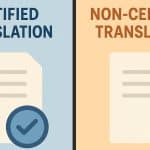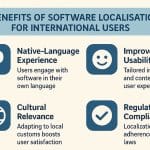The medical & healthcare sector provides services like medical care and related activities in places such as hospitals, clinics, nursing homes, specialized clinics etc. They also include pharmaceuticals, medical devices, and health insurance sectors that are integral to the medical industry. It also includes preventative care, diagnostic services, and wellness programs. The Indian and global healthcare sector is growing due to increased government spending and private investment, covering a wide range of services and industries. The impact of globalization on medical sector is unmatchable; therefore the role of localization experts or Medical interpreters and translators is more than ever.
Medical interpreters are trained professionals who facilitate effective communication between healthcare providers and patients who speak different languages or have limited English proficiency. They bridge the language gap, ensuring patients understand their medical information and treatment plans, and can effectively communicate their concerns to healthcare providers.
When a patient or a healthcare provider chose a medical interpreter, they should ensure five essential requirements. A trained and professional medical interpreter should possess these five qualities to ensure an effective communication between patient and their healthcare provider.
- Language proficiency: the medical interpreter must have near-native fluency in both languages. Having near-native fluency can bring the confidence amongst the patients and their healthcare providers that there is an accurate communication between them and there is no loss of meaning or during the course of interpretation.
- Relevant Experience: The medical translator or interpreter must have ample experience to effectively communicate complex medical concepts and terms without pausing to look them up. They ensure that patients and healthcare providers are on the same page, promoting clear and accurate communication. Experience with healthcare communication, including understanding the dynamics of doctor-patient interactions, is crucial.
- Cultural Sensitivity: If the medical interpreter is not familiar with the cultural nuances and customs of the source and target language, it may affect communication and understanding between the patients and the healthcare provider. Therefore, cultural knowledge is a mandatory criterion for the medical interpreter.
- Availability: Medical interpreter’s availability and willingness to work with different modalities, such as on-site, phone, or video interpreting is very important.
- Confidentiality: It is of prime importance that the medical interpreter understands and adheres to ethical standards, including maintaining patient confidentiality. Even when dealing with translation of sensitive documents related to patents, formulas, medical history etc. keeping confidentiality is of prime importance.
At ALS, we have specialized medical interpreters and translators in more than 50 languages who adhere to the industry standards. All our trained native or non-native medical interpreters have experience of more than 5 years that give them a definite edge over other generalist translators. Our clients have an excellent professional satisfaction that helped us develop a mutual trust and confidence while dealing with their individual cases. Our medical interpreters are readily available at all modalities like one-to-one interpretation, medical conference, videoconference and telephonic consultation.







